![Abrams, Muhal Richard: Celestial Birds [VINYL] (KARLRECORDS) Abrams, Muhal Richard: Celestial Birds [VINYL] (KARLRECORDS)](https://www.teuthida.com/productImages/misc4/28594.jpg)
A compilation of works from the late Chicago multi-reedist, experimenter, and AACM founder Muhal Richard Abrams, focused on his widely unknown electronic compositions, in four recording from 1968-1995 with collaborators including Anthony Braxton, Leroy Jenkins, Amina Claudine Myers, Roscoe Mitchell, Maurice McIntyre, Yousef Yancey, Thurman Barker, &c.
Out of Stock
Quantity in Basket: None
Log In to use our Wish List
Shipping Weight: 24.00 units
Sample The Album:
Anthony Braxton-alto saxophone
Leonard Jones-bass
Muhal Richard Abrams-clarinet, piano, synthesizer
Thurman Barker-drums
Kalaparusha Maurice McIntyre-tenor saxophone
Leroy Jenkins-violin
David Moore-vocals
Roscoe Mitchell-alto saxophone, flute
Amina Claudine Myers-piano, electric piano, organ
Yousef Yancey-theremin
George Lewis-trombone, sousaphone, synthesizer
Jay Clayton-voice
Click an artist name above to see in-stock items for that artist.
UPC: 5050580727533
Label: KARLRECORDS
Catalog ID: KR 070LP
Squidco Product Code: 28594
Format: LP
Condition: New
Released: 2020
Country: Germany
Packaging: LP
"The Bird Song" taken from “Levels And Degrees Of Light” (1968).
"Conversations With Three Of Me" taken from “The Hearinga Suite” (1989).
"Think All, Focus One" taken from “Think All, Focus One” (1995).
"Spihumonesty" taken from “Spihumonesty” (1980).
"Anybody interested in jazz knows that Chicago has always been an impressive hot spot for new talents - and still is. One essential landmark in the history and development of jazz was the founding of the AACM (Association for the Advancement of Creative Musicians) in May 1965. This non-profit organization was a melting pot (and starting point) for artists like Anthony Braxton, Roscoe Mitchell, George Lewis or Lester Bowie and his Art Ensemble Of Chicago but one of its actual founding members is known only to the deep connaisseurs: Muhal Richard Abrams (1930 - 2017).
The autodidact pianist and composer left music school and university, deciding to learn music by himself. From 1961 on, the Experimental Band was his first ensemble, but it soon turned out that Abrams' interests went beyond jazz and that he was open to the avant-garde and new music and most of all: electronic music. Which led to a double problem: On the one hand, black musicians had almost no access to the rare electronic music studios located in and funded by universities or broadcasting corporations. On the other hand, there were strong reservations regarding electronic music in the black music community. In his important book "A Power Stranger Than Itself - The AACM and American Experimental Music" GEORGE LEWIS writes that "the use of electronics ... proved controversial and widely misunderstood in a world of jazz in which acoustic instruments became conflated with musical, and eventually, cultural and even racial authenticity." Abrams' response was to actually "hide" his electronic pieces on the B-sides of his albums, and this compilation focuses on some of his best electronic experiments: the 22-minute long epic "The Bird Song" from 1968 in its original version incl. the reverb that was removed on the later CD reissue on Delmark, the synthesizer compositions "Conversations With The Three Of Me" (1989) and "Think All, Focus One" 1995) plus " Spihumonesty" (1980) with a 2nd synthesizer played by George Lewis and Yousef Yancey on theremin.
Celestial Birds casts a new light on the underrated experimenter MUHAL RICHARD ABRAMS, his innovative approach to composition and pieces that lay dormant for way too long!"-Karl Records
Artist Biographies
• Show Bio for Anthony Braxton [Anthony Braxton (born June 4, 1945) is an American composer and instrumentalist.] "Genius is a rare commodity in any art form, but at the end of the 20th century it seemed all but non-existent in jazz, a music that had ceased looking ahead and begun swallowing its tail. If it seemed like the music had run out of ideas, it might be because Anthony Braxton covered just about every conceivable area of creativity during the course of his extraordinary career. The multi-reedist/composer might very well be jazz's last bona fide genius. Braxton began with jazz's essential rhythmic and textural elements, combining them with all manner of experimental compositional techniques, from graphic and non-specific notation to serialism and multimedia. Even at the peak of his renown in the mid- to late '70s, Braxton was a controversial figure amongst musicians and critics. His self-invented (yet heavily theoretical) approach to playing and composing jazz seemed to have as much in common with late 20th century classical music as it did jazz, and therefore alienated those who considered jazz at a full remove from European idioms. Although Braxton exhibited a genuine -- if highly idiosyncratic -- ability to play older forms (influenced especially by saxophonists Warne Marsh, John Coltrane, Paul Desmond, and Eric Dolphy), he was never really accepted by the jazz establishment, due to his manifest infatuation with the practices of such non-jazz artists as John Cage and Karlheinz Stockhausen. Many of the mainstream's most popular musicians (Wynton Marsalis among them) insisted that Braxton's music was not jazz at all. Whatever one calls it, however, there is no questioning the originality of his vision; Anthony Braxton created music of enormous sophistication and passion that was unlike anything else that had come before it. Braxton was able to fuse jazz's visceral components with contemporary classical music's formal and harmonic methods in an utterly unselfconscious -- and therefore convincing -- way. The best of his work is on a level with any art music of the late 20th century, jazz or classical. Braxton began playing music as a teenager in Chicago, developing an early interest in both jazz and classical musics. He attended the Chicago School of Music from 1959-1963, then Roosevelt University, where he studied philosophy and composition. During this time, he became acquainted with many of his future collaborators, including saxophonists Joseph Jarman and Roscoe Mitchell. Braxton entered the service and played saxophone in an Army band; for a time he was stationed in Korea. Upon his discharge in 1966, he returned to Chicago where he joined the nascent Association for the Advancement of Creative Musicians (AACM). The next year, he formed an influential free jazz trio, the Creative Construction Company, with violinist Leroy Jenkins and trumpeter Leo Smith. In 1968, he recorded For Alto, the first-ever recording for solo saxophone. Braxton lived in Paris for a short while beginning in 1969, where he played with a rhythm section comprised of bassist Dave Holland, pianist Chick Corea, and drummer Barry Altschul. Called Circle, the group stayed together for about a year before disbanding (Holland and Altschul would continue to play in Braxton-led groups for the next several years). Braxton moved to New York in 1970. The '70s saw his star rise (in a manner of speaking); he recorded a number of ambitious albums for the major label Arista and performing in various contexts. Braxton maintained a quartet with Altschul, Holland, and a brass player (either trumpeter Kenny Wheeler or trombonist George Lewis) for most of the '70s. During the decade, he also performed with the Italian free improvisation group Musica Elettronica Viva, and guitarist Derek Bailey, as well as his colleagues in AACM. The '80s saw Braxton lose his major-label deal, yet he continued to record and issue albums on independent labels at a dizzying pace. He recorded a memorable series of duets with bop pioneer Max Roach, and made records of standards with pianists Tete Montoliu and Hank Jones. Braxton's steadiest vehicle in the '80s and '90s -- and what is often considered his best group -- was his quartet with pianist Marilyn Crispell, bassist Mark Dresser, and drummer Gerry Hemingway. In 1985, he began teaching at Mills College in California; he subsequently joined the music faculty at Wesleyan University in Connecticut, where he taught through the '90s. During that decade, he received a large grant from the MacArthur Foundation that allowed him to finance some large-scale projects he'd long envisioned, including an opera. At the beginning of the 21st century, Braxton was still a vital presence on the creative music scene." ^ Hide Bio for Anthony Braxton • Show Bio for Muhal Richard Abrams "Muhal Richard Abrams - World renowned pianist and composer has been in the forefront of the contemporary music scene for well over forty years. Muhal is a co-founder of The Association for the Advancement of Creative Musicians (AACM), founder of The AACM School of Music and President of The Association for the Advancement of Creative Musicians, New York City Chapter. Muhal was the first recipient of the grand international jazz award, "The JazzPar Prize", which was awarded to him in 1990 by the Danish Jazz Center in Copenhagen, Denmark. In 1999 Muhal was presented a proclamation by Richard M. Daley, Mayor of the City of Chicago, declaring April 11, 1999 as Muhal Richard Abrams Day in Chicago. In 2009 Muhal was selected to be a USA Prudential Fellow by United States Artist. In 2010 Mr. Abrams was inducted into the Downbeat Magazine "Jazz Hall of Fame". Also, in 2010 Mr. Abrams was chosen by the National Endowment for the Arts to be a NEA Jazz Master. On May 16, 2012, Muhal received the degree of Doctor of Music, honoris causa, from Columbia University, New York City. Also, on October 19, 2012, the Mid-Atlantic Arts Foundation presented Dr. Abrams with The BNY Mellon Jazz Living Legacy Award at The Kennedy Center, Washington, D. C. Except for a brief period of study at Chicago Musical College and Governors State University in Chicago, Illinois where he studied electronic music, Dr. Abrams is predominately a self-taught musician who, as a result of many years of observation, analysis, and practice as a performing musician, has developed a highly respected command of a variety of musical styles both as a pianist and composer. The versatile Dr. Abrams and members of The AACM (Association for the Advancement of Creative Musicians) are responsible for some of the most original new music approaches of the last four decades. Some of Dr. Abrams' compositions are: "String Quartet #2" performed by Kronos Quartet on November 22, 1985 at Carnegie Recital Hall in New York City; "Piano Duet #1" performed by Ursula Oppens and Frederic Rzewski for Music at the Crossroads on February 11, 1986, "Saturation Blue" performed on March 14, 1986, by The Brooklyn Philharmonic Orchestra Chamber Ensemble, "Folk Tales 88'" performed by The Brooklyn Philharmonic Orchestra on July 9, 1988, "Transversion I OP. 6" performed February 22 & 23, 1991 by The Detroit Symphony Orchestra, "What A Man" commissioned and performed by the Black Repertory Ensemble in behalf of the Center for Black Music Research at Columbia College and The Friends of the Chicago Public Library in honor of the Late Mayor Harold Washington and to commemorate the opening of the Honorable Harold Washington Library on October 7, 1991; "Duet for Violin and Piano", commissioned by the McKim Fund in the Library of Congress, 1996; "Impressions 1" performed by the SEM Ensemble, 1997, "2000 Plus The Twelfth Step" performed by the Carnegie Hall Jazz Band, 1999. "Tomorrow's Song, As Yesterday Sings Today" performed by the American Composers Orchestra at Carnegie Hall in New York City, 2000. "Mergertone" performed by the Janacek Philharmonic Orchestra, in Ostrava, Czech Republic, 2009. In addition to teaching privately, Dr. Abrams has taught composition and improvisation classes at the Banff Center in Canada, Columbia University in New York City, Syracuse University in Syracuse, New York, the New England Conservatory in Boston, Mass, the BMI composers workshop in New York City, and the Sibelius Academy in Helsinki, Finland." ^ Hide Bio for Muhal Richard Abrams • Show Bio for Thurman Barker "Thurman Barker (born January 8, 1948, Chicago, Illinois) is an American jazz drummer. Barker's first professional experience was at age sixteen with Mighty Joe Young. Barker took his bachelor's at Empire State College, then studied at the American Conservatory of Music under Harold Jones and at Roosevelt University under Edward Parimba. He next served as an accompanist for Billy Eckstine, Bette Midler, and Marvin Gaye. He was house percussionist at the Schubert Theater in Chicago in the 1960s. In 1968 he joined Joseph Jarman's first ensemble, and soon after became a member of the AACM in its early days. Aside from Jarman, he played in the late 1960s and 1970s with Muhal Richard Abrams, Pheeroan akLaff, Anthony Braxton, Billy Bang, Henry Threadgill, and Kalaparusha Maurice McIntyre. He recorded and toured again with Braxton in 1978-80 and with Sam Rivers in 1979–80. In 1985 he played in a trio with Jarman and Rivers, and in 1987 he played marimba with Cecil Taylor. In the 1990s, Barker concentrated more on composition. His 1994 work Dialogue was premiered at the Merkin Concert Hall in New York City. He composed Expansions (1999) and Time Factor (2000) for the Woodstock Chamber Orchestra. Since 1993 he has been an associate professor at Bard College. In 1999 he was guest professor at the University of St. Petersburg." ^ Hide Bio for Thurman Barker • Show Bio for Kalaparusha Maurice McIntyre "Kalaparusha Maurice McIntyre (March 24, 1936 – November 9, 2013) was an American free jazz tenor saxophonist. McIntyre, who was born in Clarksville, Arkansas but raised in Chicago, studied at the Chicago College of Music, and during the 1960s began playing with musicians such as Malachi Favors, Muhal Richard Abrams, and Roscoe Mitchell. Along with them he became a member of the ensemble Association for the Advancement of Creative Musicians in the mid-1960s. His first solo record appeared in 1969. During this time he also recorded as a session musician for Delmark Records, playing with George Freeman, J.B. Hutto, and Little Milton, among others. McIntyre moved to New York City in the 1970s, playing at Sam Rivers's Rivbea Studios and teaching at Karl Berger's Creative Studio. He and Muhal Richard Abrams toured Europe several times. After his 1981 live album, McIntyre recorded very little, playing on the streets and in the subways of New York. His next major appearance on record wasn't until 1998, with Pheeroan akLaff and Michael Logan; the following year, he played with many AACM ensemble members on the album Bright Moments. He continued to release as a leader into the 2000s." ^ Hide Bio for Kalaparusha Maurice McIntyre • Show Bio for Leroy Jenkins "Leroy Jenkins (March 11, 1932 - February 24, 2007) was a composer and avant-garde jazz violinist and violist. Jenkins was involved in the Association for the Advancement of Creative Musicians (AACM) while a public school teacher in Chicago. He co-founded the Creative Construction Company with Anthony Braxton and others. He led the Revolutionary Ensemble and formed a trio with Anthony Davis and Andrew Cyrille. During 1987 he toured Europe as part of Cecil Taylor's group. He gained recognition for music-theatre works such as The Mother of Three Sons (written in collaboration with Ann T. Greene), Fresh Faust and The Negros Burial Ground (in collaboration with Ann T. Greene), and The Three Willies (in collaboration with Homer Jackson)." ^ Hide Bio for Leroy Jenkins • Show Bio for Roscoe Mitchell "Roscoe Mitchell (born August 3, 1940) is an American composer, jazz instrumentalist, and educator, known for being "a technically superb - if idiosyncratic - saxophonist." The Penguin Guide to Jazz described him as "one of the key figures" in avant-garde jazz; All About Jazz states that he has been "at the forefront of modern music" for the past 35 years. Critic Jon Pareles in The New York Times has mentioned that Mitchell "qualifies as an iconoclast." In addition to his own work as a bandleader, Mitchell is known for cofounding the Art Ensemble of Chicago and the Association for the Advancement of Creative Musicians (AACM). Mitchell was born in Chicago, Illinois. He also grew up in the Chicago area, where he played saxophone and clarinet at around age twelve. His family was always involved in music with many different styles playing in the house when he was a child as well as having a secular music background. His brother, Norman, in particular was the one who introduced Mitchell to jazz. While attending Englewood High School in Chicago, he furthered his study of the clarinet. In the 1950s, he joined the United States Army, during which time he was stationed in Heidelberg, Germany and played in a band with fellow saxophonists Albert Ayler and Rubin Cooper, the latter of which Mitchell commented "took me under his wing and taught me a lot of stuff." He also studied under the first clarinetist of the Heidelberg Symphony while in Germany. Mitchell returned to the United States in the early 1960s, relocated to the Chicago area, and performed in a band with Wilson Junior College undergraduates Malachi Favors (bass), Joseph Jarman, Henry Threadgill, and Anthony Braxton (all saxophonists). Mitchell also studied with Muhal Richard Abrams and played in his band, the Muhal Richard Abrams' Experimental Band, starting in 1961. In 1965, Mitchell was one of the first members of the non-profit organization Association for the Advancement of Creative Musicians (AACM) along with Jodie Christian (piano), Steve McCall (drums), and Phil Cohran (composer). The following year Mitchell, Lester Bowie (trumpet), Kalaparusha Maurice McIntyre (tenor saxophone), Favors, Lester Lashley (trombone), and Alvin Fielder (drums), recorded their first studio album, Sound. The album was "a departure from the more extroverted work of the New York-based free jazz players" due in part to the band recording with "unorthodox devices" such as toys and bicycle horns. From 1967 Mitchell, Bowie, Favors and, on occasion, Jarman performed as the Roscoe Mitchell Art Ensemble, then the Art Ensemble, and finally in 1969 were billed as the Art Ensemble of Chicago. The group included Phillip Wilson on drums for short span before he joined Paul Butterfield's band. The group lived and performed in Europe from 1969 to 1971, though they arrived without any percussionist after Wilson left. To fill the void, Mitchell commented that they "evolved into doing percussion ourselves." The band did eventually get a percussionist, Don Moye, who Mitchell had played with before and was living in Europe at that time. For performances, the band often wore brilliant African costumes and painted their faces. The Art Ensemble of Chicago have been described as becoming "possibly the most highly acclaimed jazz band" in the 1970s and 1980s. Mitchell and the others returned to the States in 1971. After having been back in Chicago for three years, Mitchell then established the Creative Arts Collective (CAC) in 1974 that had a similar musical aesthetic to the AACM. The group was based in East Lansing, Michigan and frequently performed in auditoriums at Michigan State University. Mitchell also formed the Sound Ensemble in the early 1970s, an "outgrowth of the CAC" in his words, that consisted mainly of Mitchell, Hugh Ragin, Jaribu Shahid, Tani Tabbal, and Spencer Barefield. In the 1990s, Mitchell started to experiment in classical music with such composers/artists such as Pauline Oliveros, Thomas Buckner, and Borah Bergman, the latter two of which formed a trio with Mitchell called Trio Space. Buckner was also part of another group with Mitchell and Gerald Oshita called Space in the late 1990s. He then conceived the Note Factory in 1992 with various old and new collaborators as another evolution of the Sound Ensemble. He lived in the area of Madison, Wisconsin and performed with a re-assembled Art Ensemble of Chicago. In 1999, the band was hit hard with the death of Bowie, but Mitchell fought off the urge to recast his position in the group, stating simply "You can't do that" in an interview with Allaboutjazz.com editor-in-chief Fred Jung. The band continued on despite the loss. Mitchell has made a point of working with younger musicians in various ensembles and combinations, many of whom were not yet born when the first Art Ensemble recordings were made. Mainly from Chicago, these players include trumpeter Corey Wilkes, bassist Karl E. H. Seigfried, and drummer Isaiah Spencer. In 2007, Mitchell was named Darius Milhaud Chair of Composition at Mills College in Oakland, California, where he currently lives. Mitchell was chosen by Jeff Mangum of Neutral Milk Hotel to perform at the All Tomorrow's Parties festival in March 2012 in Minehead, England." ^ Hide Bio for Roscoe Mitchell • Show Bio for George Lewis "George E. Lewis is the Edwin H. Case Professor of American Music at Columbia University. A 2015 Fellow of the American Academy of Arts and Sciences and a Corresponding Fellow of the British Academy, Lewis has received a MacArthur Fellowship (2002), a Guggenheim Fellowship (2015), a United States Artists Walker Fellowship (2011), an Alpert Award in the Arts (1999), and fellowships from the National Endowment for the Arts. In 2015, Lewis received the degree of Doctor of Music (DMus, honoris causa) from the University of Edinburgh. A member of the Association for the Advancement of Creative Musicians (AACM) since 1971, Lewis's work in electronic and computer music, computer-based multimedia installations, and notated and improvisative forms is documented on more than 140 recordings. His work has been presented by the BBC Scottish Symphony Orchestra, London Philharmonia Orchestra, Radio-Sinfonieorchester Stuttgart, Boston Modern Orchestra Project, Talea Ensemble, Dinosaur Annex, Ensemble Pamplemousse, Wet Ink, Ensemble Erik Satie, Eco Ensemble, and others, with commissions from American Composers Orchestra, International Contemporary Ensemble, Harvestworks, Ensemble Either/Or, Orkestra Futura, Turning Point Ensemble, San Francisco Contemporary Music Players, 2010 Vancouver Cultural Olympiad, IRCAM, Glasgow Improvisers Orchestra, and others. Lewis has served as Ernest Bloch Visiting Professor of Music, University of California, Berkeley; Paul Fromm Composer in Residence, American Academy in Rome; Resident Scholar, Center for Disciplinary Innovation, University of Chicago; and CAC Fitt Artist In Residence, Brown University. Lewis received the 2012 SEAMUS Award from the Society for Electro-Acoustic Music in the United States, and his book, A Power Stronger Than Itself: The AACM and American Experimental Music (University of Chicago Press, 2008) received the American Book Award and the American Musicological Society's Music in American Culture Award. Lewis is co-editor of the two-volume Oxford Handbook of Critical Improvisation Studies (2016), and his opera Afterword, commissioned by the Gray Center for Arts and Inquiry at the University of Chicago, premiered at the Museum of Contemporary Art Chicago in October 2015 and has been performed in the United States, United Kingdom, and the Czech Republic. Professor Lewis came to Columbia in 2004, having previously taught at the University of California, San Diego, Mills College, the School of the Art Institute of Chicago, the Koninklijke Conservatorium Den Haag, and Simon Fraser University's Contemporary Arts Summer Institute. Lewis studied composition with Muhal Richard Abrams at the AACM School of Music, and trombone with Dean Hey." ^ Hide Bio for George Lewis
7/9/2025
Have a better biography or biography source? Please Contact Us so that we can update this biography.
7/9/2025
Have a better biography or biography source? Please Contact Us so that we can update this biography.
7/9/2025
Have a better biography or biography source? Please Contact Us so that we can update this biography.
7/9/2025
Have a better biography or biography source? Please Contact Us so that we can update this biography.
7/9/2025
Have a better biography or biography source? Please Contact Us so that we can update this biography.
7/9/2025
Have a better biography or biography source? Please Contact Us so that we can update this biography.
7/9/2025
Have a better biography or biography source? Please Contact Us so that we can update this biography.
Track Listing:
SIDE A
1. The Bird Song 22:39
SIDE B
1. Conversations With Three Of Me 5:46
2. Think All, Focus One 5:36
3. Spihumonesty 7:54
Vinyl Recordings
Improvised Music
Jazz
Free Improvisation
Chicago Jazz & Improvisation
Large Ensembles
Jazz Reissues
Anthony Braxton
Staff Picks & Recommended Items
Jazz & Improvisation Based on Compositions
Search for other titles on the label:
KARLRECORDS.


![Abrams, Muhal Richard: Celestial Birds [VINYL] (KARLRECORDS) Abrams, Muhal Richard: Celestial Birds [VINYL] (KARLRECORDS)](https://www.teuthida.com/productImages/full/28594.Full.jpg)


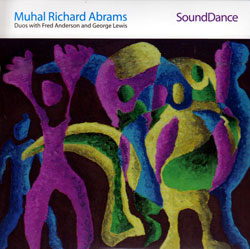
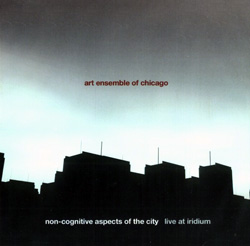
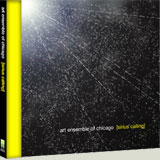
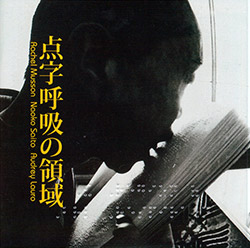



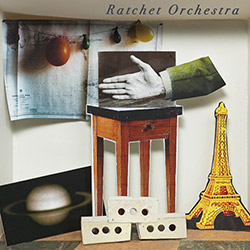
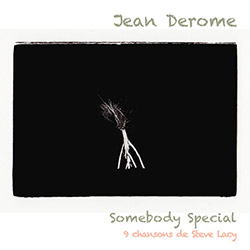


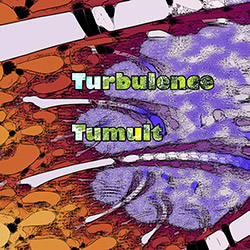
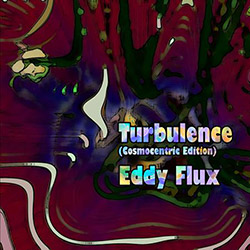
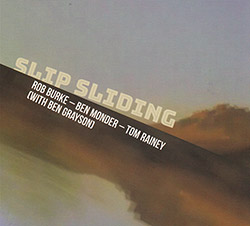
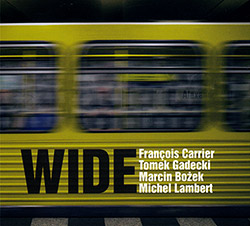
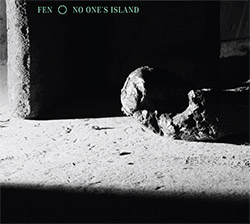




![BlueRing Improvisers: Materia [2 CDs]](https://www.teuthida.com/productImages/misc4/36513.jpg)








![Wheelhouse (Rempis / Adasiewicz / McBride): House And Home [VINYL]](https://www.teuthida.com/productImages/misc4/36462.jpg)
![+DOG+: The Light Of Our Lives [2 CDs]](https://www.teuthida.com/productImages/misc4/36009.jpg)


![Parker, Evan / Jean-Marc Foussat: Insolence [VINYL]](https://www.teuthida.com/productImages/misc4/36398.jpg)










![Deupree, Jerome / Sylvie Courvoisier / Lester St. Louis / Joe Morris: Canyon [2 CDs]](https://www.teuthida.com/productImages/misc4/36404.jpg)



![Eventless Plot | Haarvol: The Subliminal Paths [CASSETTE + DOWNLOAD]](https://www.teuthida.com/productImages/misc4/36232.jpg)










![Eventless Plot | Francesco Covarino: Methexis [CASSETTE + DOWNLOAD]](https://www.teuthida.com/productImages/misc4/36231.jpg)



![Das B (Mazen Kerbaj / Mike Majkowski / Magda Mayas / Tony Buck): Love [VINYL]](https://www.teuthida.com/productImages/misc4/36329.jpg)


![Eternities: Rides Again [CASSETTE]](https://www.teuthida.com/productImages/misc4/36247.jpg)
![Lopez, Francisco: Untitled (2021-2022) [2 CDs]](https://www.teuthida.com/productImages/misc4/36438.jpg)






![Money : Money 2 [2 CDs]](https://www.teuthida.com/productImages/misc4/35894.jpg)




![Klinga, Erik: Elusive Shimmer [VINYL]](https://www.teuthida.com/productImages/misc4/36258.jpg)
![CHANGES TO blind (Phil Zampino): Volume 9 - I Wave on a Fine Vile Mist [CD + DOWNLOAD]](https://www.teuthida.com/productImages/misc4/36061.jpg)

![Wallmart / Rubbish: Asset Protection [split CD]](https://www.teuthida.com/productImages/misc4/35900.jpg)


![+Dog+: The Family Music Book Vol. 5 [2 CDs]](https://www.teuthida.com/productImages/misc4/35897.jpg)
![Kuvveti, Deli : Kuslar Soyledi [CASSETTE w/ DOWNLOAD]](https://www.teuthida.com/productImages/misc4/36107.jpg)

![Brown, Dan / Dan Reynolds: Live At The Grange Hall [unauthorized][CASSETTE]](https://www.teuthida.com/productImages/misc4/36245.jpg)








![Palestine, Charlemagne / Seppe Gebruers: Beyondddddd The Notessssss [VINYL]](https://www.teuthida.com/productImages/misc4/36206.jpg)
![Palestine, Charlemagne / Seppe Gebruers: Beyondddddd The Notessssss [NEON GREEN VINYL]](https://www.teuthida.com/productImages/misc4/36207.jpg)

![Laubrock, Ingrid: Purposing The Air [2 CDs]](https://www.teuthida.com/productImages/misc4/35639.jpg)

![Yoko, Ono / The Great Learning Orchestra: Selected Recordings From Grapefruit [2 CDs]](https://www.teuthida.com/productImages/misc4/35841.jpg)









![Zorn, John / JACK Quartet: The Complete String Quartets [2 CDs]](https://www.teuthida.com/productImages/misc4/35609.jpg)

![Lonsdale, Eden: Dawnings [2 CDs]](https://www.teuthida.com/productImages/misc4/35480.jpg)



![Sorry For Laughing (G. Whitlow / M. Bates / Dave-Id / E. Ka-Spel): Rain Flowers [2 CDS]](https://www.teuthida.com/productImages/misc4/35985.jpg)

![Rolando, Tommaso / Andy Moor : Biscotti [CASSETTE w/ DOWNLOADS]](https://www.teuthida.com/productImages/misc4/36106.jpg)


![Electric Bird Noise / Derek Roddy: 8-10-22 [CD EP]](https://www.teuthida.com/productImages/misc4/35970.jpg)








![Elephant9 : Mythical River [VINYL]](https://www.teuthida.com/productImages/misc4/34624.jpg)



![Elephant9 with Terje Rypdal: Catching Fire [VINYL 2 LPs]](https://www.teuthida.com/productImages/misc4/35355.jpg)
![Deerlady (Obomsawin, Mali / Magdalena Abrego): Greatest Hits [VINYL]](https://www.teuthida.com/productImages/misc4/34876.jpg)







![Surplus 1980: Illusion of Consistency [CD]](https://www.teuthida.com/productImages/misc4/35069.jpg)
![Staiano, Moe: Away Towards the Light [VINYL + DOWNLOAD]](https://www.teuthida.com/productImages/misc4/35037.jpg)
![Coley, Byron: Dating Tips for Touring Bands [VINYL]](https://www.teuthida.com/productImages/misc4/17906.jpg)

![Lost Kisses: My Life is Sad & Funny [DVD]](https://www.teuthida.com/productImages/misc4/lostKissesDVD.jpg)